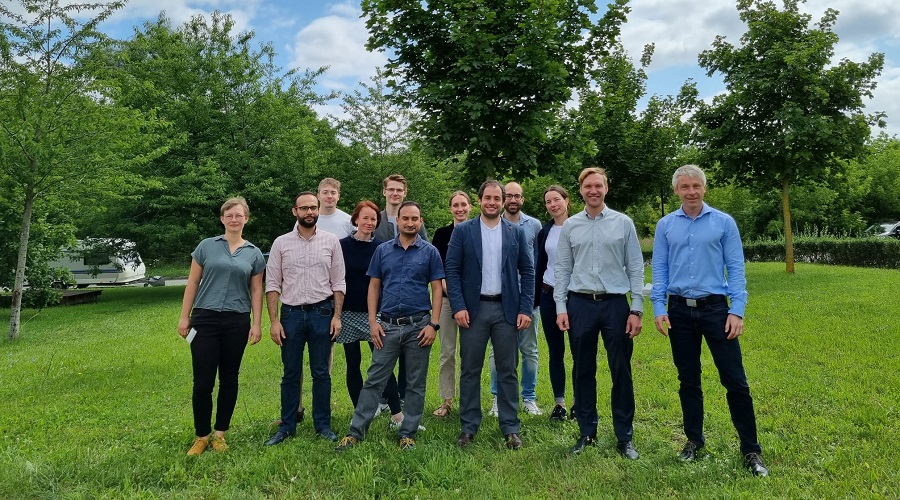
Oriol successfully defends his PhD thesis in Halle
We are happy to announce the second PhD defense from our group this year! Congratulations to Dr. rer. nat. Oriol Alejo-Valle, who completed his thesis magna cum laude as the first of our group to defend in Halle. His dissertation is called “Deciphering the role of miR99a~125b tricistrons in the pathogenesis of myeloid leukemia of Down syndrome”.
Given the plasticity of hematopoietic stem / progenitor cells, which are the origin of all types of blood cells in the body, multiple routes of differentiation must be blocked for leukemia development. However, our understanding of the molecular basis behind this phenomenon remains incomplete. Acute megakaryoblastic leukemia (AMKL) is frequently associated with trisomy 21 and GATA1 mutations (GATA1s), and is characterized by perturbed erythroid differentiation and the hyperproliferation of megakaryocytic progenitors. Insight into how these factors interact to drive leukemogenesis would benefit not only this specific context, but also the broader field of hematology and oncology.
Oriol’s work focused on the miR99a~125b cluster on chromosome 21, which is transcribed as a tricistron and upregulated in transient abnormal myelopoiesis (TAM) and Down syndrome myeloid leukemia (ML-DS). He demonstrated that miR-125b is the primary member of the tricistron that synergizes with Gata1s to drive leukemogenesis, and identified Arid3a as the main miR-125b target underlying this synergy. In our working model, we propose that, while Gata1s perturbs erythroid differentiation and causes the hyperproliferation of megakaryocytic progenitors, intact ARID3A expression assures megakaryocytic differentiation and growth restriction; thus, its repression is a key event in the development of megakaryoblastic leukemia. Mechanistically, ARID3A acts as a tumor suppressor and appears to mediate TGF-beta-induced cell cycle arrest and apoptosis in complex with SMAD2/3. Upon knockdown, these functions are revoked, causing a dual megakaryocytic / erytrhoid differentiation blockade and subsequently AMKL. Inversely, ARID3A restoration relieves megakaryocytic differentiation arrest in AMKL patient-derived xenografts – illustrating how transcription factor mutations and perturbed gene regulation interplay to block differentiation and cause leukemia, and demonstrating how overcoming this blockade may be an effective treatment strategy for AMKL.
Oriol is staying as a postdoctoral fellow until the end of the year, in order to complete revisions for the miR-125b / ARID3A manuscript. A preprint is available at bioRxiv: https://www.biorxiv.org/content/10.1101/2021.04.26.440795v1.